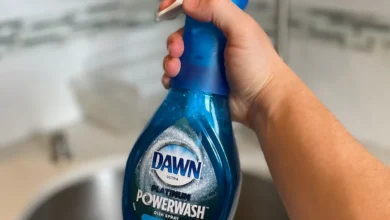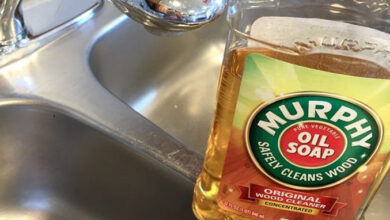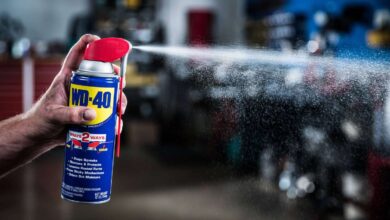White Vinegar Method
White vinegar is a versatile solution for tackling rust on various metal items. For small items like pliers, soak them in a jar of white vinegar for a few minutes, then scrape away the rust. For larger objects like shovels, pour white vinegar on the rusted areas, let it sit, and then brush off the rust.
For heavily rusted tools or knives, submerge them in a bowl of white vinegar overnight, scrub with steel wool, a scouring pad, or a wire brush, and repeat if necessary. Clean with mild dish soap and water after rust removal.
Baking Soda Method
Baking soda is effective for light rust stains on thin metal items. Create a thick paste by mixing baking soda with water, apply it to the rusted metal, and let it sit for an hour. Scrub with steel wool, a scouring pad, or a wire brush, rinse off the paste with water, and repeat if needed. Dry thoroughly
Lemon and Salt Method
Combine the acidity of fresh lemon juice with the abrasiveness of salt to remove rust. Cover rusted areas with salt, squeeze fresh lemon juice over it, and let it sit for two hours.
Use the lemon rind as a scrubber, and for stubborn stains, use steel wool, a scouring pad, or a wire brush. Rinse off the residue, and dry the metal item thoroughly
Dish Soap and Salted Potato Method
Surprisingly, a potato can treat rust due to its oxalic acid content. Slice a potato in half, apply dish soap to the cut section, sprinkle with salt (or baking soda), and use it as a mild abrasive to scrub rusted areas. Rinse and dry well. Best for metal pieces without intricate detailing.
Citric Acid Method
Citric acid, available in health food stores, effectively removes rust but may also strip paint and coatings. Mix three tablespoons of citric acid with hot water, submerge rusty metal objects overnight, then scrub off dissolved rust with steel wool, a scouring pad, or a wire brush. Dry thoroughly. Note: Avoid using this method on painted surfaces.




